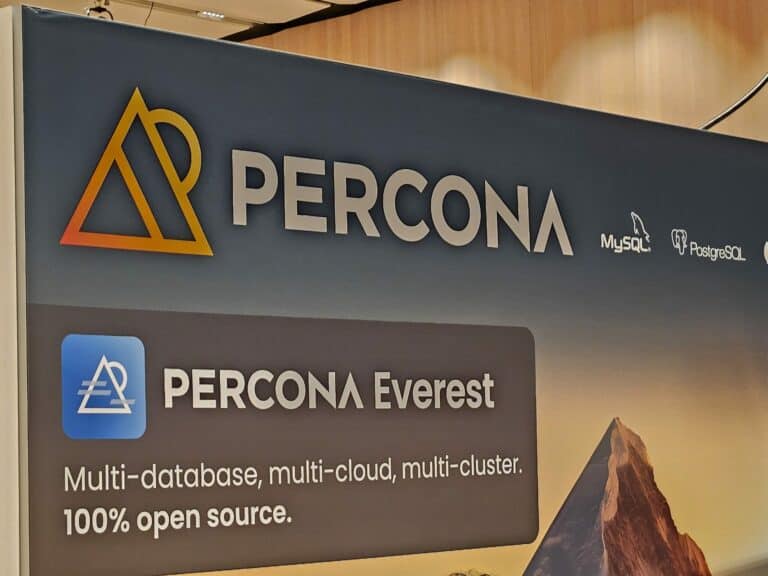Percona Everest, an open-source cloud-native database platform, promises to break away from traditional Databases-as-a-Service (DBaaS) offerings. No hosted service or dependence on one vendor as with many DBaaS solutions, but database provisioning on any infrastructure of your choice. Whether in the cloud, on-premises, hybrid or any other solution.
Percona Everest, announced at the Open Source Summit in Vienna this week, offers support for multiple databases running on Kubernetes. These include MySQL, PostgreSQL, and MongoDB. According to creator Percona, the main advantage is that it does not rely on hosted infrastructure such as public DBaaS platforms. Instead, it allows companies to manage their own database clusters, either at third-party vendors or on their own infrastructure.
This means users are not locked into a specific cloud provider and are free to manage their databases on the platform of their choice. It doesn’t matter whether that’s Amazon Web Services, Google Cloud, OpenShift or their on-premises servers. This gives users the freedom to choose their database type without being locked into the constraints of any one platform owner.
As long, of course, as it is database engines like MySQL, PostgreSQL or MongoDB that work across platforms. Deploying Amazon RDS in Google Cloud, for example, is obviously impossible, as such proprietary solutions integrate deeply with the platform they were created for.
Optimal control and insight
Percona says this new solution offers the most flexibility in how and where users deploy their databases. It should also free them from expensive contracts with all sorts of restrictive ifs and buts that come with vendor lock-in. In short: as much control as possible over database configurations, optimal access to data and insight into all associated costs at all times.
Those who do not want to set this up on their own because they might lack experience with Kubernetes-based deployments can turn to Percona for enterprise-level support. That is how Percona pays its bills and makes money in this regard.
In addition to the promised flexibility in terms of supported database types and cloud environments, Percona Everest offers disaster recovery and comprehensive monitoring through its proprietary Percona Monitoring and Management (PMM). The platform also offers single sign-on (SSO) for centralized user access and private deployment options fully customizable by administrators. An intuitive user interface brings all this together in an attractive way for the user, whether that user is a developer or administrator, a QA engineer or DevOps specialist.
Also read: Percona survey: little movement in database market
